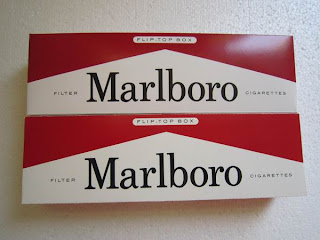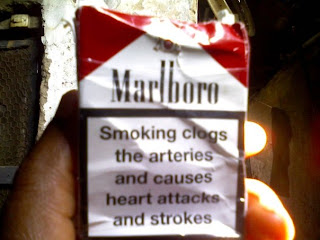
A University of Waterloo researcher received a $7.4-million grant, the largest of its kind awarded by a national funding body, to continue studying the effectiveness of tobacco-control policies around the world.
Project leader Geoffrey Fong, a psychology and health studies professor, said the rigorous international research is essential to combating the scourge of smoking — the leading cause of preventable death globally.
“Tobacco overwhelms any other single source of death and disease in the world,” Fong said.
One billion people are expected to die of smoking-related disease this century.
The new five-year grant from the Canadian Institutes of Health Research will expand the International Tobacco Control Policy Evaluation Project created by Fong and colleagues in 2002.
Over the years its global scope grew from the first four countries to 20 now and 23 with the new funding. Those countries include more than half the world’s population and more than 70 per cent of the world’s smokers.
Tobacco use is going down in Canada, but still four million Canadians smoke. The problem is far worse in other countries, particularly low- and middle-income countries were smoking rates are very high, Fong said.
In China, 300 million people smoke and half of all adult men. Considering about half of smokers will die of smoking-related disease, a quarter of all men in China could succumb to the ill effects of tobacco.
“The magnitude of that is extraordinary and not easily understood,” Fong said.
Smoking causes 2.5 times more deaths worldwide than HIV/AIDS.
But unlike any other cause of illness, smoking is actively promoted by tobacco businesses and healthy policies opposed. The industry’s history of providing misinformation is why strong research is needed to counter those arguments, Fong said.
“You have something arguing against everything public health officials want to do,” Fong said.
The international project evaluates the impact of tobacco-control policies in the world’s first health treaty ratified by 174 countries, which include enhanced warning labels, bans and restrictions on advertising and promotion and increased taxation and smoke-free laws.
Many of these initiatives are already part of Canadian culture, but resisted by the tobacco industry in other countries. Where the tobacco industry is strong, Fong said, policies are weak.
The tobacco industry is state-owned in China, where research shows policies are ineffective. Warning labels, for example, are not graphic, text warnings small and general, and information on the back of packages appears in English. As well the country raised taxes to comply with the treaty, but the actual cost of cigarettes didn’t rise.
Fong said research calls public attention to these issues and shows the need for better policies. His testimony in the House of Commons last year with Canadian data showing cigarette package labelling effectiveness was declining influenced the government’s decision to introduce regulations for larger graphic warnings.
Fong said the global study allows researchers to compare countries and how policies work depending on the particular situation.
For example, some European countries did far better than others when smoke-free policies for restaurants and bars were enacted. Ireland, the United Kingdom and France did extensive public education along and worked with the businesses, leading to a huge drop in smoking in bars from about 95 per cent to five per cent in under a year.
Netherlands and Germany, on the other hand, made only a small dent in smoking in bars because little more was done than notify businesses of the new legislation.
The project is expanding to include three African countries — Kenya, Nigeria and Zambia — where smoking rates are low. But, Fong said, as countries experience economic growth, smoking rates typically rise when cigarettes become more affordable.
Researchers are wondering whether it’s possible to do a sort of early inoculation against tobacco use in these African countries before more people pick up smoking.
The project includes more than 100 tobacco-control experts and researchers and more than 1,000 support staff to run the intensive studies that follow individuals across countries over time to get a real picture of how policies are working.
“Research at the global level is much needed in this area,” Fong said.



























